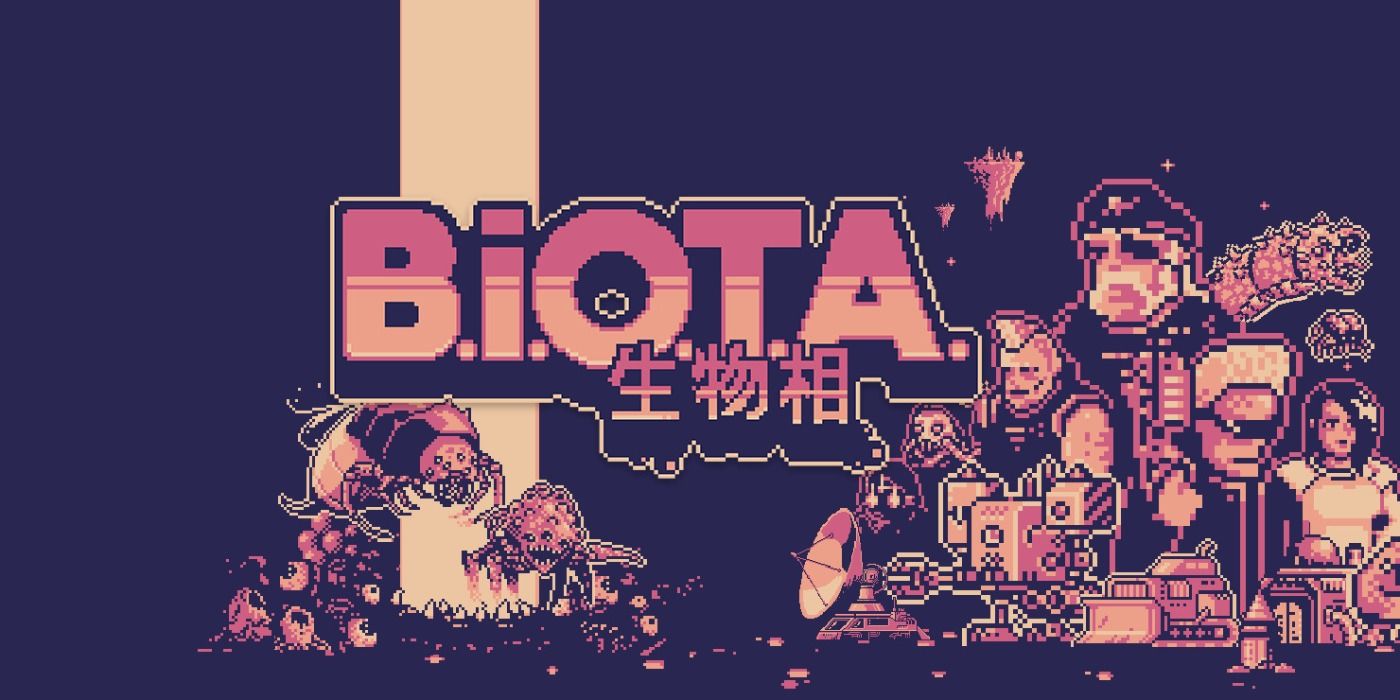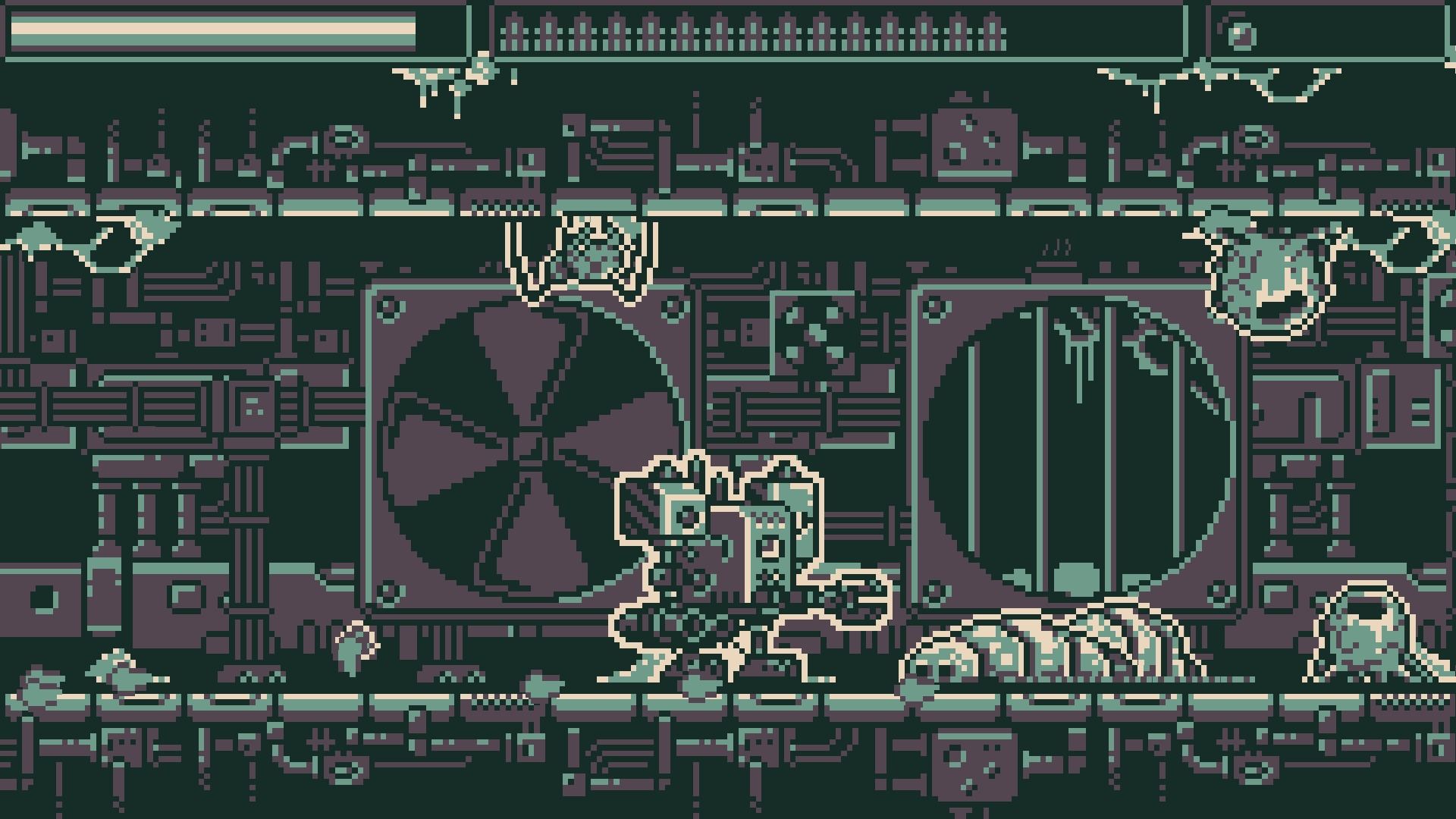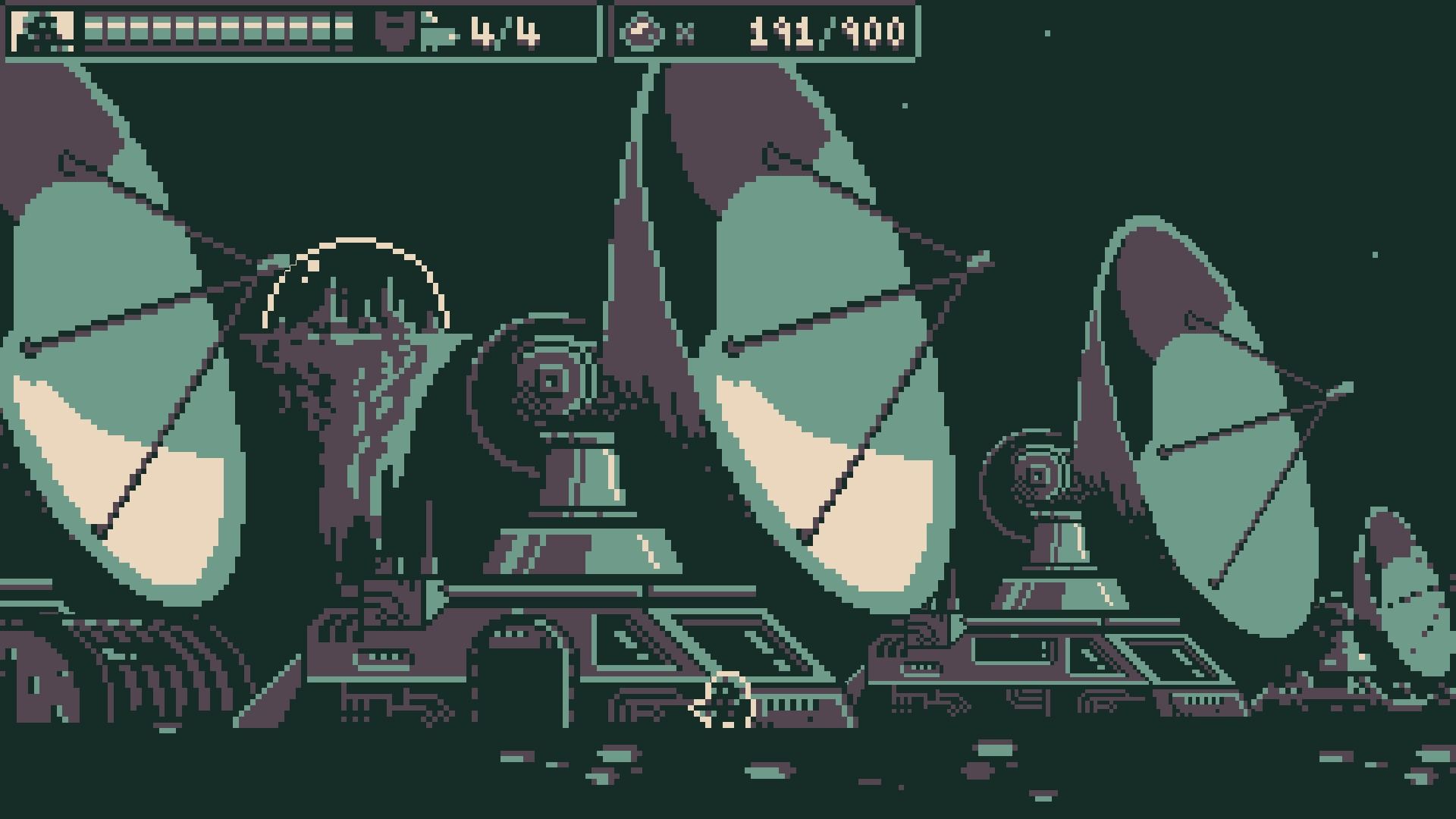B.I.O.T.A. is a 2D Metroidvania developed by small bros and published by Retrovibe. A few overly long vehicle sections aside, B.I.O.T.A. is a fun, bite-sized Metroidvania experience, with a retro style that evokes the era of the Nintendo Game Boy games.
B.I.O.T.A. is set in the 22nd century, in an era where mankind has mastered interstellar travel following the discovery of a substance known as viridium. Corporations have set up mining colonies on asteroids and planets, in order to acquire more viridum for space travel. All communication is cut off from a viridium mining colony, and a science vessel is dispatched to uncover what happened at the colony, but the team vanishes during its investigation. The Gemini II Squad of mercenaries is then sent in, in order to find the scientists and deal with the threat aboard the mining colony.
Players can switch between different members of the Gemini II Squad, each with different weapons and special abilities. There are eight playable characters, though some aren't unlocked until the game is completed. Outside of one specific section of the game, the player is free to use any squad member during their run in B.I.O.T.A. The squad has a base on the surface of the mining colony, where the player can heal, switch characters, buy items, and use the training facility. There is also an Arcade Mode outside of the Metroidvania-style main campaign, with shooting galleries and time trials.
The real game begins once the player descends the lift and enters the mining colony, as the stages are crawling with enemies and environmental puzzles. Levels are composed of individual rooms in a larger, slowly-uncovered map, and using the viridium taken from slain enemies to buy items found in the hidden black market stalls in the colony helps progression. It's an average Metroidvania gameplay loop, but exploring the base is a lot of fun, and slowly upgrading the squad and unlocking new routes is as fun here as it is in something like Super Metroid on the SNES. The stages have their own unique gimmicks and enemies, and B.I.O.T.A is always clear about where the key items needed for progression are placed on the map.
The low point of B.I.O.T.A. are its vehicle sections. There are parts of the game where the squad can unlock vehicles that can be used in certain stages, such as a mech suit made for mining, or a shuttlecraft. Outside of the submarine level, these sections are shooter-focused, but they go on for way too long, and quickly become repetitive, especially as some of them can be solved by sitting in the corner of the screen and holding the fire button. These sections feel like padding, as B.I.O.T.A. can be finished in around 4-5 hours, but these vehicle segments quickly wear out their welcome.
One major aspect of B.I.O.T.A. is its synthwave aesthetics and color scheme, with the player able to select from a number of different color palettes for the game, and some being unlocked by finding hidden secrets. The choice of the palette will vary by taste, but there are some that are eye-searingly bright and make it difficult to play the game, while others are more muted. The text font and size are dreadful, as the writing is thinly stretched across the top of the screen. The dialogue in B.I.O.T.A. is rather dry and the player isn't missing too much by skipping the text, especially as the important items are listed on the map.
B.I.O.T.A. is a short, enjoyable title. It doesn't quite match the retro chops of something like Far Cry 3: Blood Dragon, and it doesn't have a massive twisting map of something like Castlevania: Symphony of the Night, but it's great for someone looking for a fast-paced action platformer with a retro-style, has stages that are easy to explore (and get a 100% completion at the end), and a story that has the depth of an 80's action movie.
B.I.O.T.A. is available on PC via GoG and Steam today, April 12, 2022. Screen Rant was provided with a digital code for the purposes of this review.



